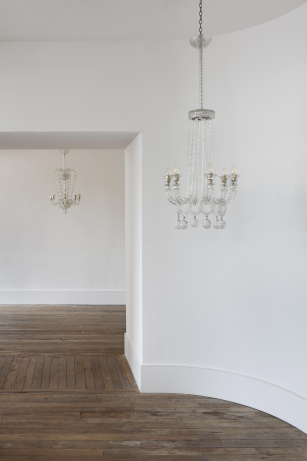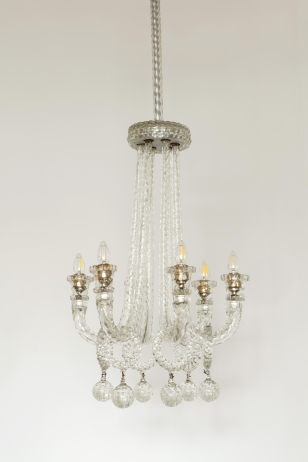Barovier & Toso
Biography
Barovier is one of the oldest Italian glassmakers and family businesses, founded in 1291 on the island of Murano. Murano was where the glaziers had to do their work to prevent the risk of fires in the cities as well as to preserve the secrets of the trade. The first member of the family on record is Jacobello in 1295. Two centuries later, Angelo Barovier became a great name creating precious pieces, one of which; the 'Barovier wedding cup' is now in the Murano museum and said to date from 1450.
In the late nineteenth century the Barovier group formed a new company, 'Artisti Barovier' that won awards for its new techniques such as mother-of-pearl glass and corniola red without gold.
After the First World War, the Barovier factory was refurbished and the company name change to 'Vetreria Artistica Barovier&C'. This rebranding coincided with Ercole Barovier joining the company as a designer and as part of the management in 1920. Ercole was the son of Benvenuto Barovier, a highly respected glass furnace owner, and started work at his father's factory straight after leaving school. He flourished and took over the company in a very short period of time. Ercole created new manufacturing techniques and colours but he also designed new effects and this was where he really excelled. In 1939, Barovier merged with the Toso family, another old business in Murano to form 'Barovier & Toso' and the period following saw some great inventions from Ercole.
In 1954, Ercole Barovier was given the title of Cavaliere del Lavoro by the Italian government thanks to his innovative works. He finished his career only two years before his death in 1972, leaving behind a massive portfolio of 25,000 designs. Ercole's son Angelo then undertook the management of the company and attempted to move with the trends of the time and the changing society. He followed in his father's footsteps, creating wonderful glass designs and also renovating the management. He later gained, in 1996, the title of Cavaliere del Lavoro just as his father had before him.
Since the 1980s, with the help of his son Jacopo, Angelo developed the company so that it became modern, yet still comprising all the traditions of one of the oldest family businesses in the world.

